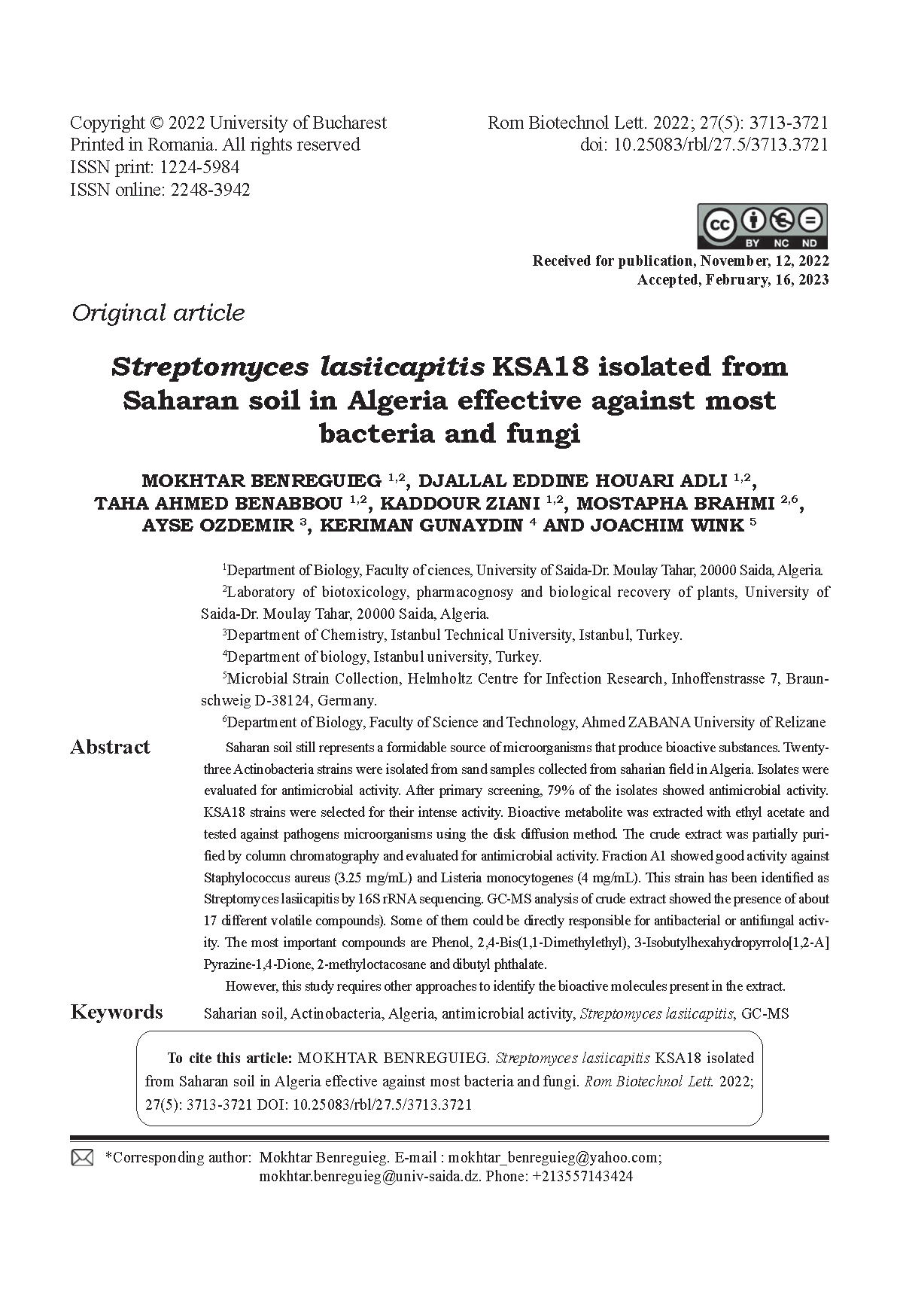Streptomyces lasiicapitis KSA18 isolated from Saharan soil in Algeria effective against most bacteria and fungi
DOI:
https://doi.org/10.25083/rbl/27.5/3713.3721Cuvinte cheie:
Saharian soil, Actinobacteria, Algeria, antimicrobial activity, Streptomyces lasiicapitis, GC-MSRezumat
Saharan soil still represents a formidable source of microorganisms that produce bioactive substances. Twentythree Actinobacteria strains were isolated from sand samples collected from saharian field in Algeria. Isolates were evaluated for antimicrobial activity. After primary screening, 79% of the isolates showed antimicrobial activity. KSA18 strains were selected for their intense activity. Bioactive metabolite was extracted with ethyl acetate and tested against pathogens microorganisms using the disk diffusion method. The crude extract was partially purified by column chromatography and evaluated for antimicrobial activity. Fraction A1 showed good activity against Staphylococcus aureus (3.25 mg/mL) and Listeria monocytogenes (4 mg/mL). This strain has been identified as Streptomyces lasiicapitis by 16S rRNA sequencing. GC-MS analysis of crude extract showed the presence of about 17 different volatile compounds). Some of them could be directly responsible for antibacterial or antifungal activity. The most important compounds are Phenol, 2,4-Bis(1,1-Dimethylethyl), 3-Isobutylhexahydropyrrolo[1,2-A] Pyrazine-1,4-Dione, 2-methyloctacosane and dibutyl phthalate.
However, this study requires other approaches to identify the bioactive molecules present in the extract.




